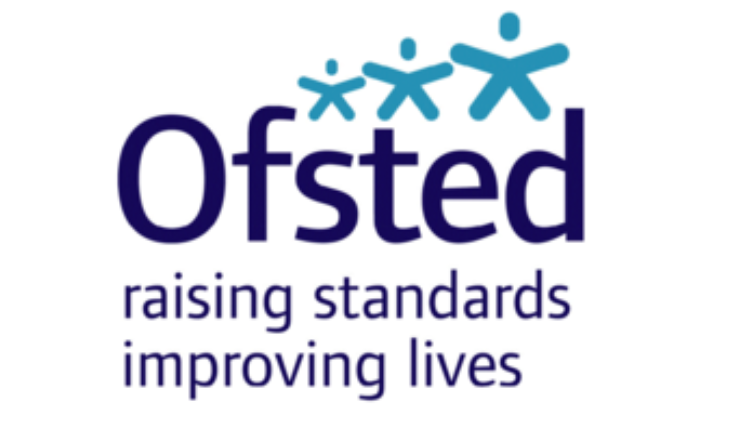Ofsted recently held a consultation: Improving the way Ofsted inspects education which proposed changes to inspection and reporting of education settings in England. This consultation closed on 28 April and Ofsted will soon publish the outcome. This was an important opportunity for us at Coram PACEY to tell Ofsted what kind of barriers registered childminders face and how inspections could be a more positive and constructive experience for you. Thank you to those of you who shared your insights through our Ofsted webinar, survey and ongoing engagement with members to ensure that our response captured your experiences.
Coram PACEY has maintained strong engagement with Ofsted throughout the consultation process. We recently met with His Majesty’s Chief Inspector, Sir Martyn Oliver, to raise key issues in person and ensure the perspectives of registered childminders and other early years professionals are fully represented.
Below we have highlighted some of the main themes from our consultation response:
Unique challenges
Ofsted is proposing that inspections will take into account providers’ individual circumstance and local context and inspectors will tailor inspections based on different types of providers.
Childminders face unique challenges during inspection, often working alone and navigating answering the inspectors questions whilst continuing your usual work with the children in your setting. We would like to see an inspection process that respects the daily routines of childminders and avoids unnecessary disruption. The presence of an inspector can unsettle children and affect a childminder’s ability to demonstrate their usual practice – we hope that the proposed additional phone/video call before your inspection could mitigate some of these impacts. We also welcome the indication that the proposals would not make inspections longer. A shorter, more focused visit would reduce the burden on childminders.
“Ofsted say nothing needs to be done differently when they visit but this isn’t true, on a normal day as a childminder you aren’t justifying everything you do over the course of time out loud while continuing to work. We have to change our rhythm and routine to allow for these conversations.” – Coram PACEY childminder member
Childminders are also less likely to be able to step away from the children to answer sensitive or complex questions from an inspector (such as safeguarding questions). In our response, we said that the additional notification call could be an opportunity to ask these questions with more sensitivity and focus.
“It feels like inspectors are looking for things to pull us up on, they seem to work to a checklist that we are not privy to and have no guidance on. Want to feel like they’re looking for the positives rather than picking apart my practice.” – Coram PACEY childminder member
A source of anxiety and stress
It’s clear from our members’ feedback that inspections can be a major source of anxiety, even for the most confident and highly experienced practitioners. The pressure to “perform” during inspection, particularly for childminders in a highly personal setting like your home, can have a significant impact on well-being. In a recent survey you rated inspection the second highest contributor to poor mental health (after cost-of-living pressures).
While a nursery or school receives a judgement at a provider level, for childminders this feels more personal:
“Reports are very personal for childminders – it’s hard not to take it personally or feel let down. When a setting is given grades, it defines the setting, for a childminder it defines the person. Has Ofsted thought about how this could impact a person’s mental health? When you care deeply, how do you stop it defining you as a person?” – Coram PACEY childminder member
In our response, we highlighted various other ways that the inspection experience could be improved: more clarity on the inspection date, a better working relationship with your inspector, confidence that your inspector understands your setting and more.
“The date of the inspection is too vague. A call the week before saying they will be in 7 working days is not good enough for childminders. It’s stressful and you have to change your day to ensure you’re in just in case they arrive. Childminders allow for an element of spontaneity in each day based on the children and this can’t happen when you have to wait for the inspector.” – Coram PACEY childminder member

Inspector training
We often receive feedback from you around inconsistency between inspectors and a “potluck” approach to inspections. It’s vital that inspectors have a clear understanding and training specifically on childminding settings to respect your routines and close working relationships with staff and families. Alongside our consultation response, Coram PACEY is putting forward examples of your inspection experiences to Ofsted to feed into inspector training and help avoid these inconsistencies.
“There is such a power imbalance it feels pointless to try and professionally challenge an inspectors view of your practice and setting” – Coram PACEY childminder member
New report cards and grading
Ofsted is proposing to remove the ‘single word’ overall effectiveness grade and introduce a new 5-point grading scale across different areas. This scale ranges from ‘causing concern’ at the lowest end, through ‘attention needed’, ‘secure’, ‘strong’, and ‘exemplary’ at the highest end.
We said the proposals give more nuance and detail – “secure” and “strong” give a more granular approach than the current “good” grading. However, this does not feel like the dramatic shift many of our members were expecting or hoping for. The single-word labels still offer an overview for families particularly the “at a glance” section of the proposed report cards. In our poll, 32% of you said the proposed 5-point scale is a better approach than the current overall effectiveness grading. 27% disagree, and 42% neither agree nor disagree. Many of you found the proposals for new gradings across different areas complex and difficult to understand.
We would like Ofsted to be more clear on how you’d achieve an “exemplary” grading (and many of you agree with us). We’re also concerned that the approach in confirming “exemplary” practice could place extra burden on providers, e.g. submitting evidence or case studies to support this grading.

Golden thread of inclusion
Coram PACEY strongly welcomes the concept of inclusion being a “golden thread” throughout the framework. This recognises the vital need to ensure every child can thrive, regardless of background or circumstance and your crucial role in this. This sentiment was reflected in our polling: Of 69 childminder respondents, 77% agree with Ofsted’s working definition of inclusion and only 4% disagree. (19% said they neither agree nor disagree).
We also welcomed the binary met/not met judgement for safeguarding which is a clearer approach for providers and families. We would like clarity on what this change would mean for re-inspection triggers and funding decisions.
What’s next?
Ofsted has been conducting test visits of settings under the proposed methodology. We were encouraged to hear positive feedback from our childminder members who have participated in these so far, and we continue to put forward childminders in this important testing phase. It’s vital that this phase reflects the full diversity of the early years sector with different setting types and contexts to ensure the approach works for everyone.
Coram PACEY will ensure that our members are fully supported with any changes to inspection and reporting that come out from the consultation outcome. We look forward to seeing Ofsted’s announcement and we are hopeful that it will reflect our members’ feedback to improve the inspection experience for registered childminders.




